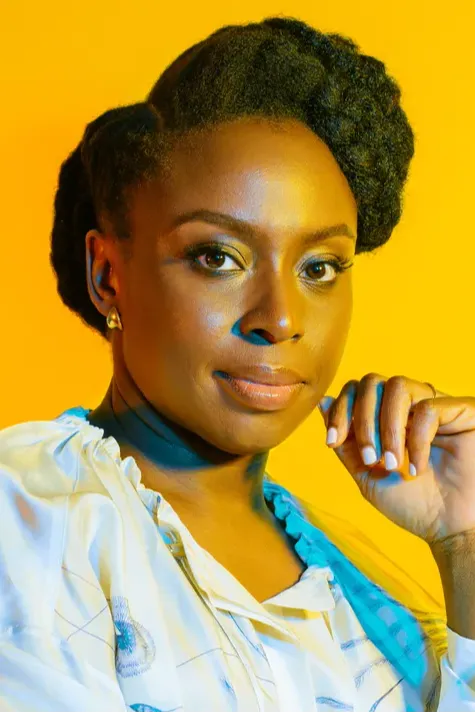Chimamanda Ngozi Adichie
Biography
Chimamanda Ngozi Adichie (born 1977) is a Nigerian novelist, short story writer, and essayist widely celebrated for her incisive exploration of identity, feminism, and postcolonial African society. Born in Enugu, Nigeria, and raised in the university town of Nsukka, she grew up in a literate and intellectually stimulating environment. Her father was a professor of statistics and her mother a university registrar, both of whom valued education and encouraged her early interest in storytelling.
Adichie studied medicine and pharmacy at the University of Nigeria but later moved to the United States, earning a degree in communication and political science from Eastern Connecticut State University and a master’s in creative writing from Johns Hopkins University. She also studied African studies at Yale University, further grounding her literary work in both global and Nigerian contexts.
Her debut novel, Purple Hibiscus (2003), received critical acclaim for its vivid portrayal of family life under political unrest in Nigeria, winning the Commonwealth Writers’ Prize for Best First Book. Her second novel, Half of a Yellow Sun (2006), set during the Nigerian Civil War, won the Orange Prize for Fiction and established her as a leading voice in contemporary literature. In 2013, Adichie published Americanah, which examines themes of race, immigration, and love through the lens of a Nigerian woman navigating life in the United States.
Beyond her fiction, Adichie is known for her essays and talks addressing feminism and social issues. Her 2012 TED Talk, We Should All Be Feminists, was adapted into a widely circulated essay and has influenced global discussions on gender equality. She has also written essays such as Dear Ijeawele, or A Feminist Manifesto in Fifteen Suggestions (2017), offering practical guidance on raising feminist children.
Adichie’s work is celebrated for its narrative elegance, complex characters, and fearless engagement with difficult social and political themes. Her storytelling bridges personal experience and historical context, giving voice to contemporary African life while addressing universal human concerns. In addition to literary awards, she has been recognized internationally for her cultural influence, appearing on lists of influential thinkers and public intellectuals.
Through her novels, essays, and public speaking, Chimamanda Ngozi Adichie has become a defining figure in modern literature, shaping conversations about race, gender, and identity in the 21st century.
